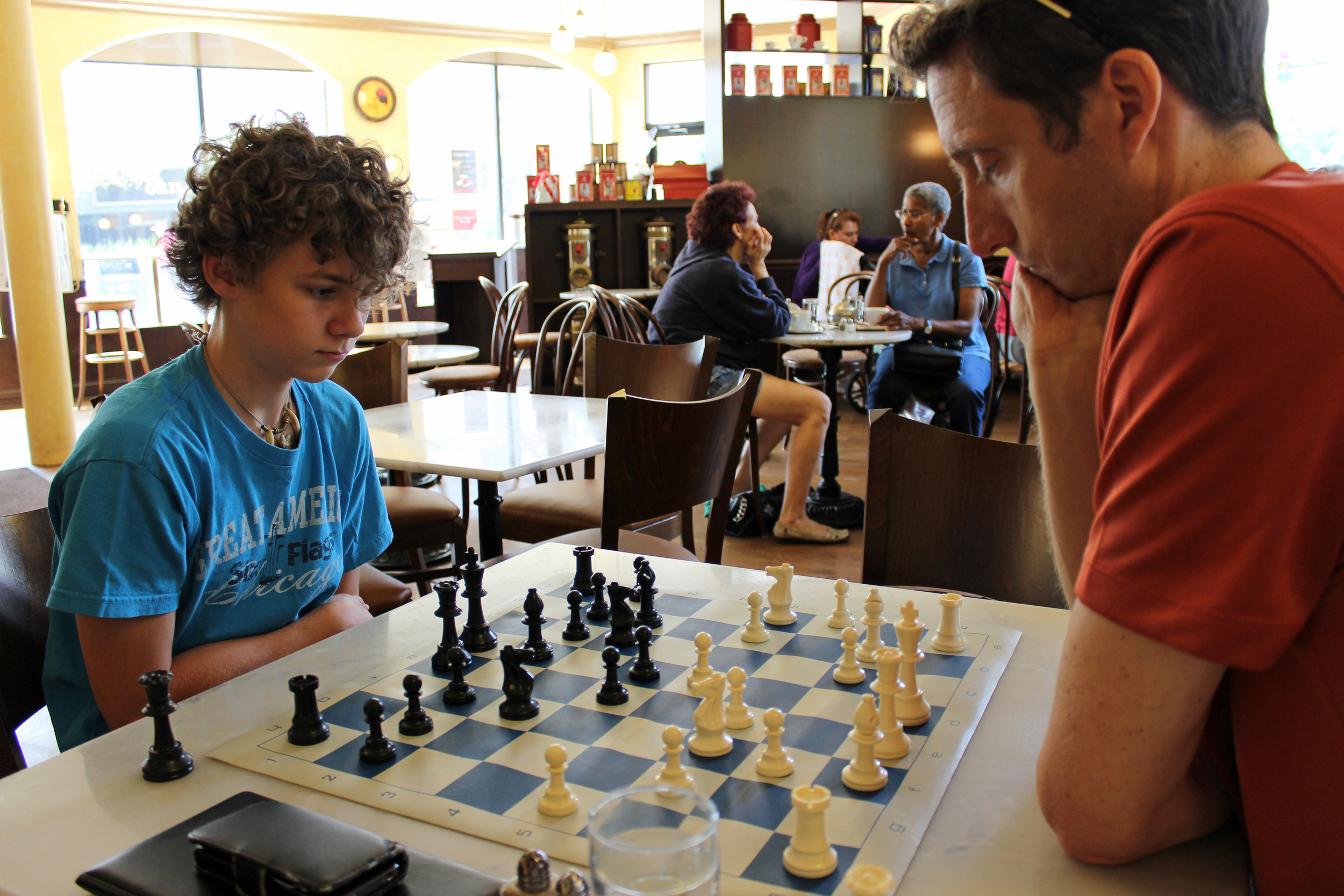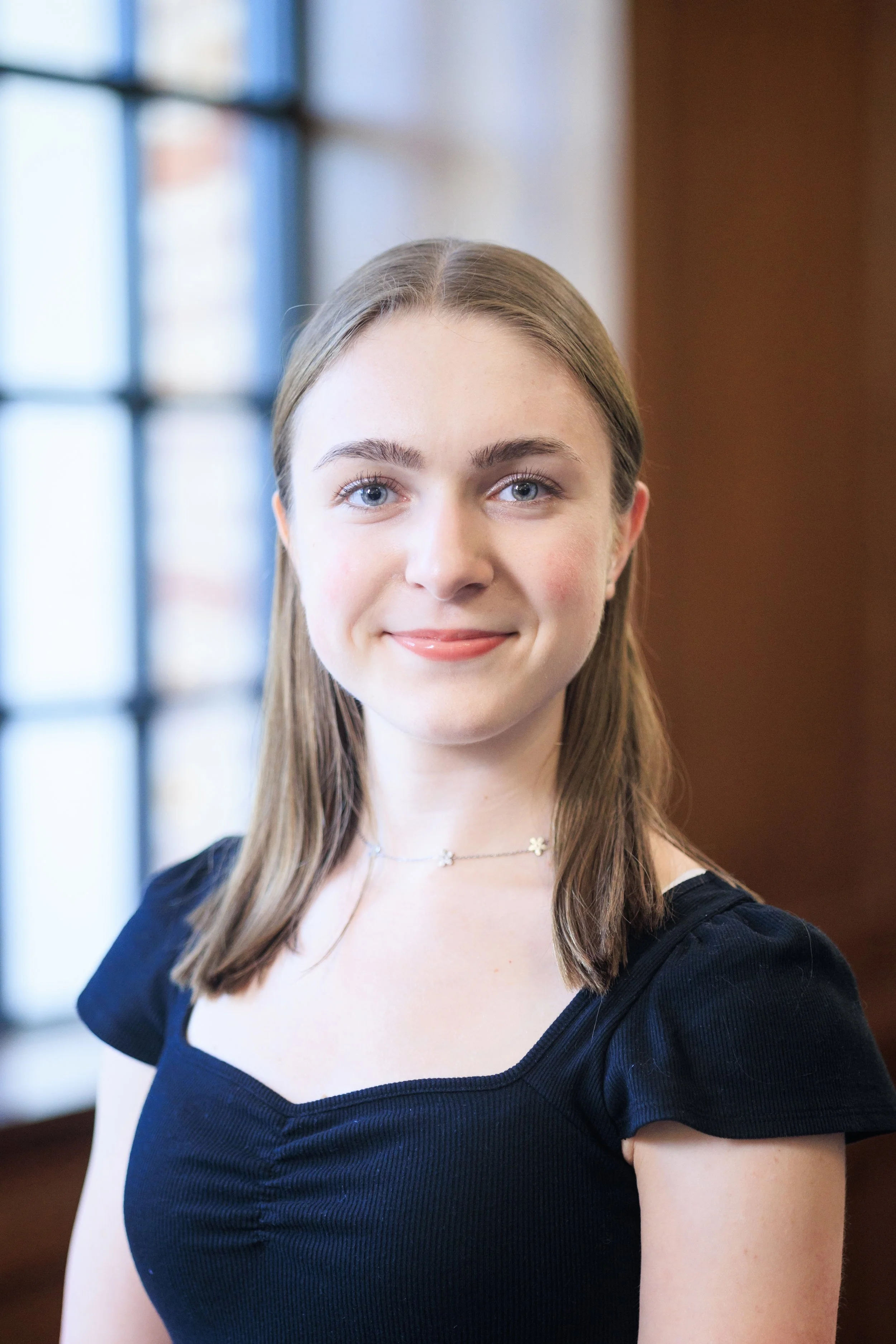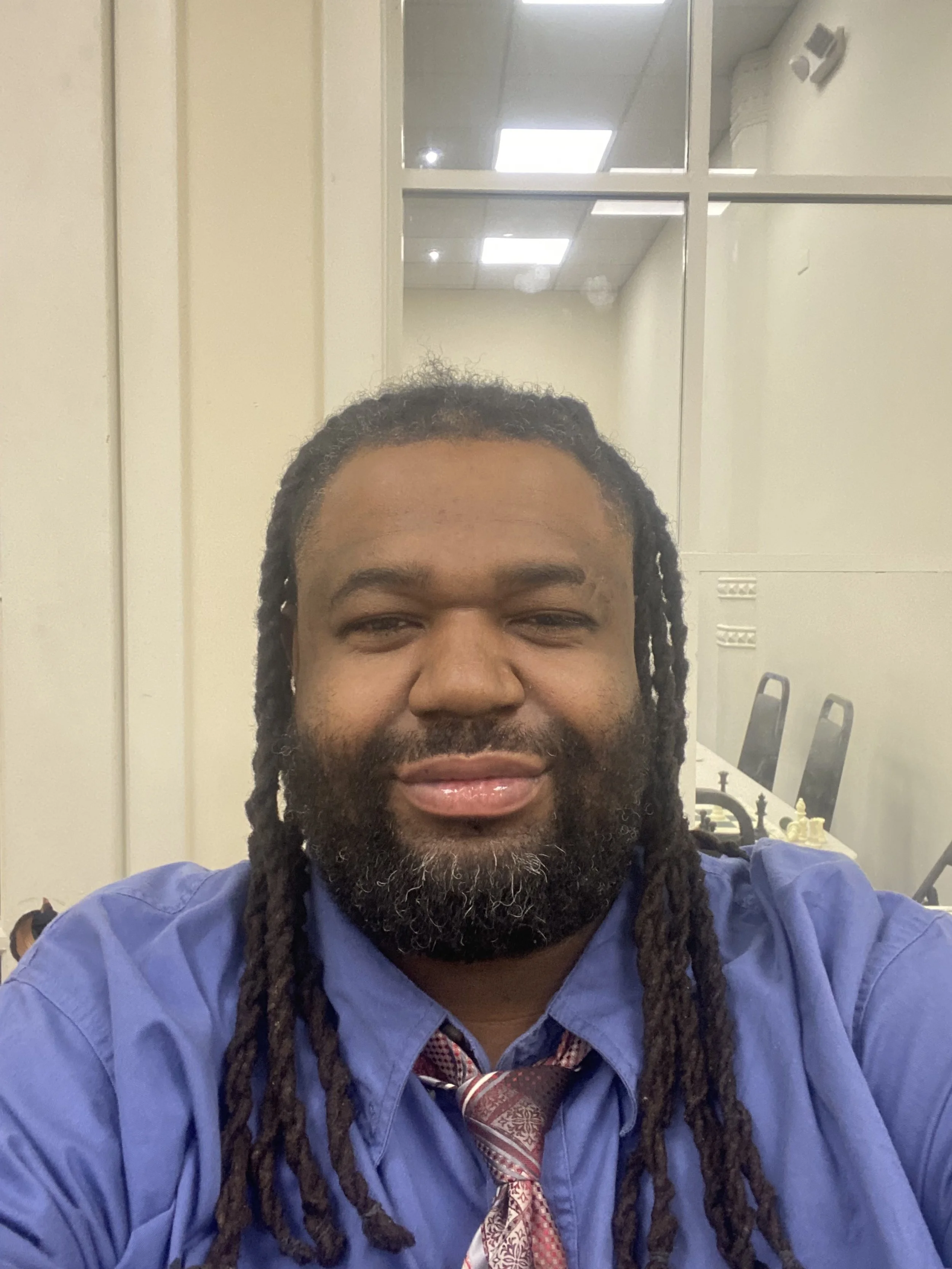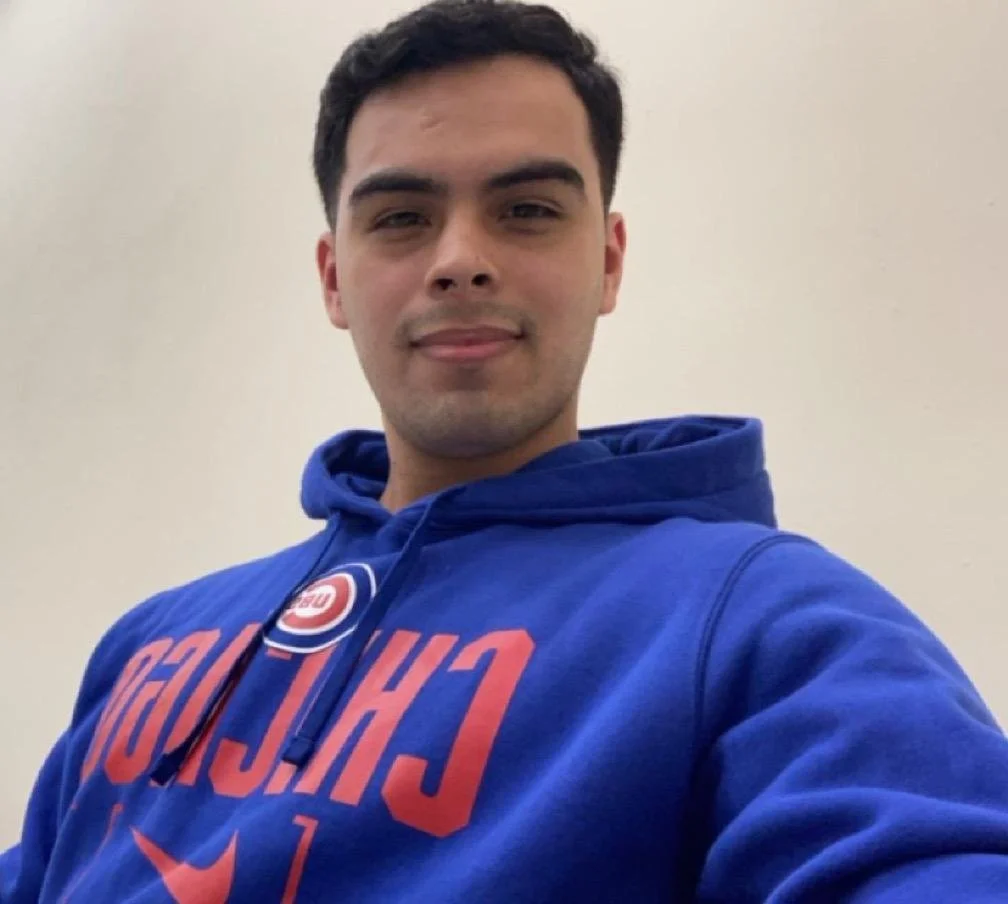Our team
Board of Directors
Jonathan Silverstein (President) is a computer programmer, with a focus on data engineering. Jonathan holds a bachelors in Data Science from the University of Michigan. He started playing chess at the age of 17, and didn’t play in his first tournament (or beat his grandpa) until 18. After that Jonathan played for the University of Michigan chess team, and played in a number of tournaments; he was able to achieve a USCF Expert title in 2021 and 2024-25. Now, he helps out running many of the chess tournaments at the Chicago Chess Center.
Edwin Walker (Vice President) is a retired computer programmer. He is a dedicated chess coach and lifelong chess player. He runs and plays often in Chicago Chess Center tournaments and other major tournaments.
Zinnia Cantrell (Executive Director) first joined the Chicago Chess Center as a casual chess player and is now assisting CCC with tournaments and networking. She is passionate about helping us make chess more available to the community of Chicago. She is also working on going back to school to study natural science.
Senna Kawji (Tournament Manager) learned how to play chess at the age of 18. She holds a degree in psychology from the University of Illinois at Chicago. She hopes to improve by playing in more CCC tournaments and help others learn chess in an engaging and fun way. Besides chess, she enjoys drawing art and baking sweets for everyone to enjoy.
Lamar Lockett is a lifelong chess player. He coaches at many Chicago Public Schools (CPS) and has helped elementary schools win state and CPS championship trophies. Lamar plans spring break, summer camps, and day off camps at the Chicago Chess Center.
Maggie Tsyganova is a freshman at Rice University studying Economics. She attended high school in Chicago, where she was Captain of the Walter Payton Chess Team that placed 3rd in the 2023 IHSA State Championship. She has played competitive chess since middle school and is passionate about increasing female representation in chess through Queens United Chess, the non-profit she co-founded in 2019. With the CCC, she is excited to continue staying connected with the Chicago chess community. Outside of chess, she enjoys studying foreign languages and dance.
Instructors
Drew Bell is a dedicated chess enthusiast with two decades of experience. He’s had the privilege of competing at high levels, facing formidable opponents, and participating in tournaments across the country, marked by victories and defeats. He has a commitment to continuous improvement! Chess is his passion.
Drew’s goal is to help students develop an understanding of the game, improve decision-making, enhance problem-solving, critical thinking, and creativity. No matter your level of experience, he’s committed to creating a supportive, fun, engaging learning environment where you can thrive and achieve your chess goals.
Isaac Gonzalez shares a birthday with one of the most famous chess players in history, Bobby Fischer. On the contrary, his play isn't as accurate. He has a twin brother, sharing many different hobbies competitively, including several sports, like soccer and basketball. Isaac learned to play chess at 10 years old, but took it up as a hobby several years ago. He has been training for some time to improve his play, as well as coaching for over six years. He loves teaching, and in general, playing chess.
Edwin Walker (Vice President) is a retired computer programmer. He is a dedicated chess coach and lifelong chess player. He runs and plays often in Chicago Chess Center tournaments and other major tournaments.
in memoriam
FM Albert Chow (January 26, 1964 - October 30, 2021) 7-time Illinois Open champion/co-champion, 1994 US Open co-champion, and Chicago Chess Center founding board member.
Join Our Board
Chicago Chess Center NFP Inc. is seeking to grow and diversify its board of directors. We’re looking for people who are committed and passionate, who show common sense and good judgment, who respect group processes, who are centered and self-aware, and who have a sense of humor. As a startup organization, we need self-starters, risk-takers, and freethinkers along with organized and dependable professionals. We need people with experience in fundraising, entrepreneurship, for-profit and/or nonprofit management, curriculum development, and/or marketing or public relations. Also, as an organization seeking to serve the entire city, we want to include members of demographic groups underrepresented in the chess community. For more information, please reply through our contact page.












